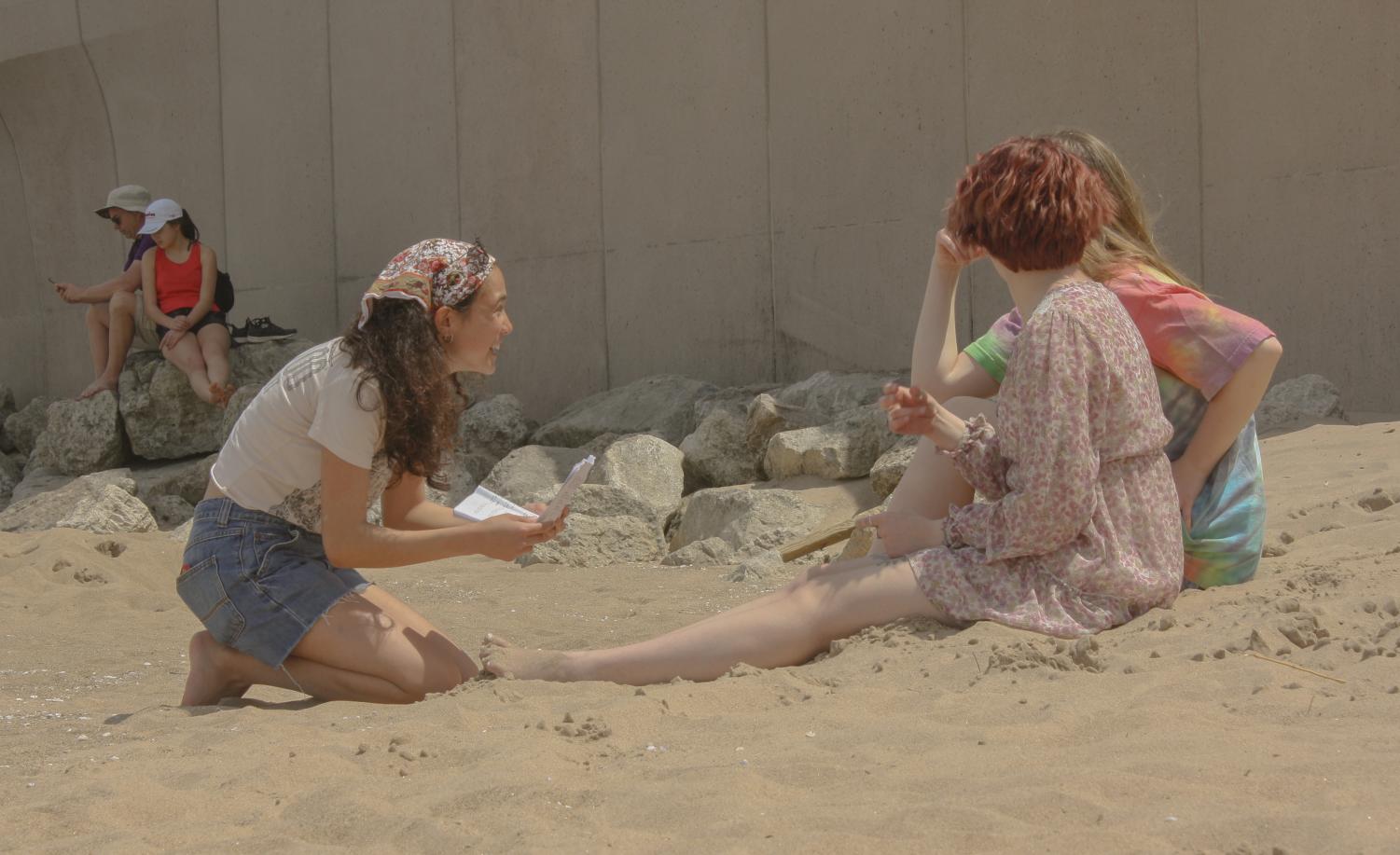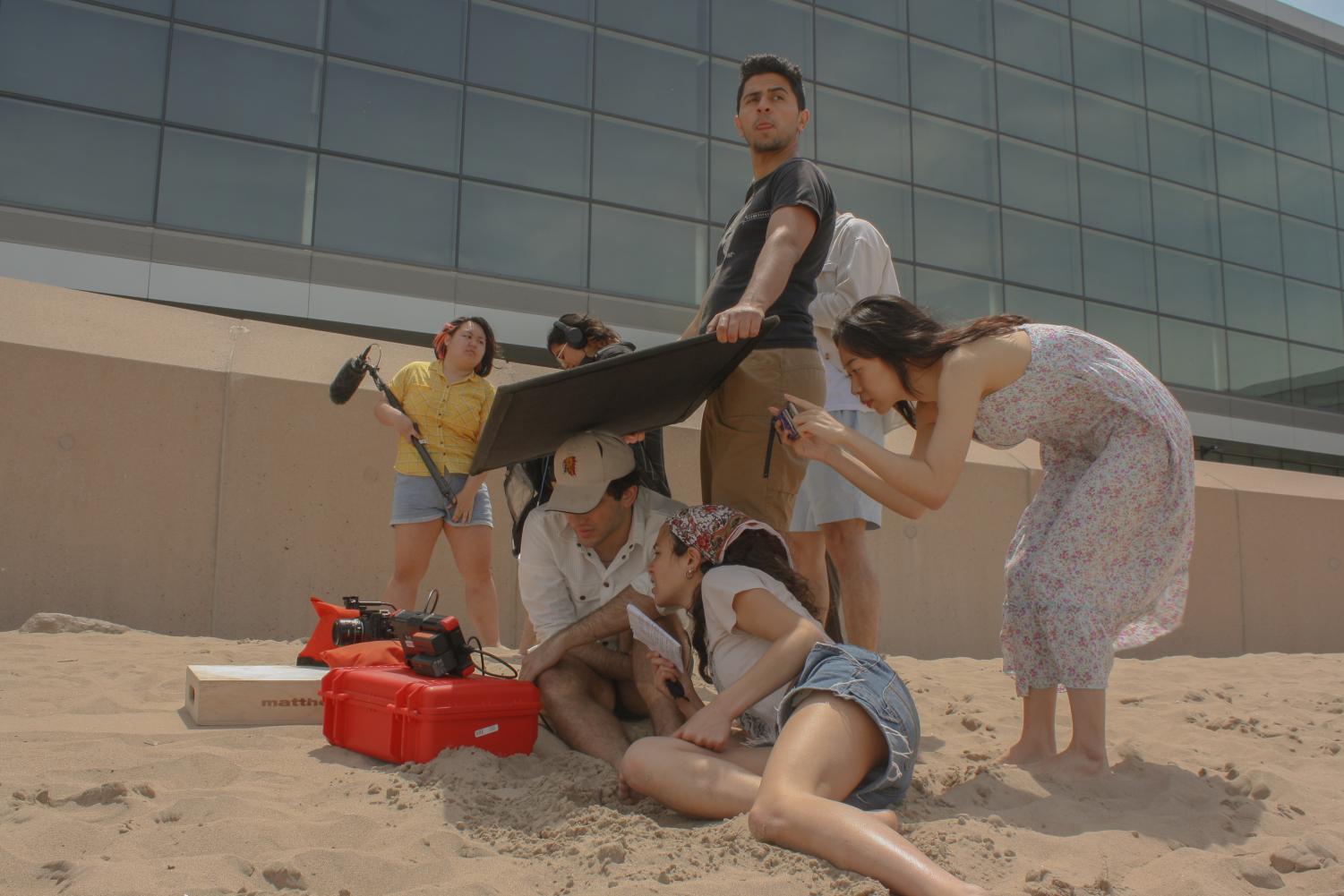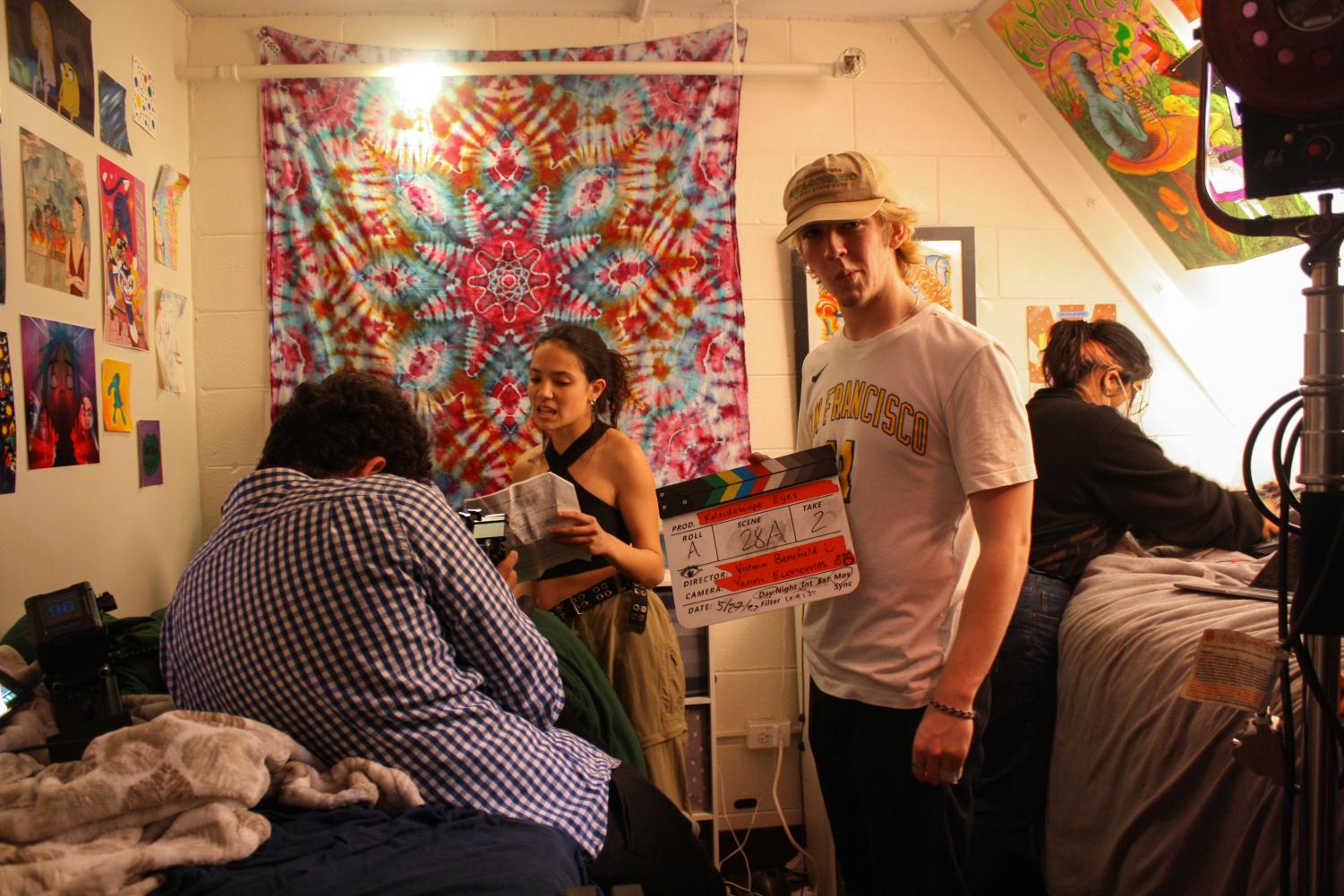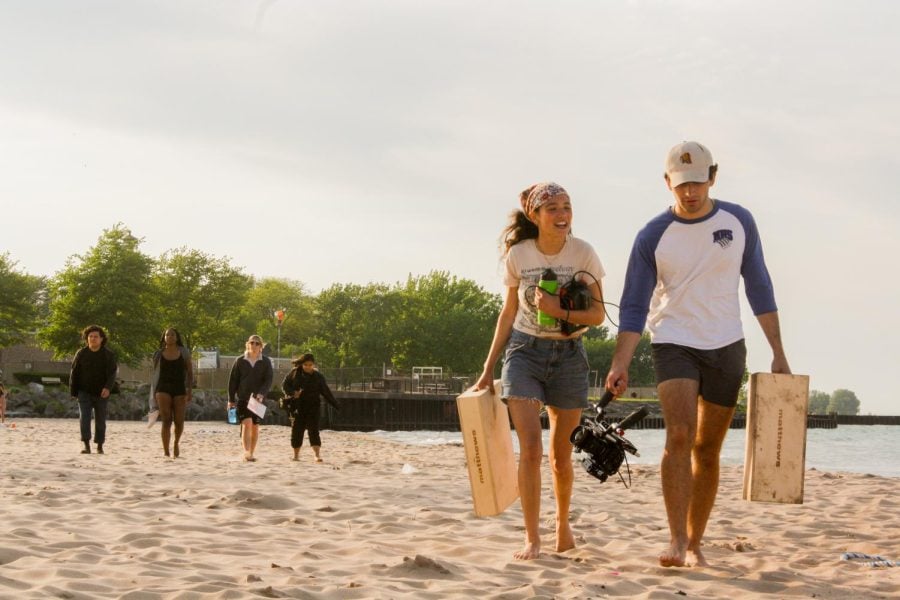No grant? No problem: Northwestern students’ short film passion project ‘Kaleidoscope Eyes’ captures the story of female friendship
Photo courtesy of Rebecca Shaid
One of the film’s key scenes was filmed at North Beach.
February 1, 2023
Content warning: This article contains mentions of sexual assault.
On their last day of filming, the cast and crew of “Kaleidoscope Eyes” celebrated with hugs and screams waist-deep in a frigid Lake Michigan.
They had just captured the perfect shot for the final scene.
With a humble $1,300 budget raised through the crowdfunding site Indiegogo and a passion for the story they wanted to tell, the on-campus, independent project wrapped up filming last summer.
“Kaleidoscope Eyes” was written and co-produced by Medill junior Rebecca Shaid, directed by Medill senior Victoria Benefield (both former Daily staffers) and produced by Communication junior Minh Bui.
“I remember when Victoria called cut,” Bui said. “They walked up to the shore, and they were like, ‘We’re done. It’s over.’ And all of my worries up until that point about whether or not this (film) was going to happen completely disappeared.”
“Kaleidoscope Eyes” follows the story of three friends who decide to take psychedelic mushrooms at the end of their first year in college. Through this experience, the trio reflect on the good and bad of freshman year and how they have grown.
While the film explores heavier themes of sexual assault and mental health as it dives into the female college experience, Shaid said she also wanted to highlight moments of joy, love and support within female friendships.
“We all go through s–t, and we all have trauma — sometimes shared trauma, sometimes individual,” Shaid said “But it’s supposed to show the beauty of female friendship and how you can get through this. You can get to the other side.”

Shaid and Benefield drew from the actors’ own experiences and insights to develop the three main characters.
To treat this story with the care it deserved, Shaid said it was important for this project to be female-led.
For Bui, the film’s intentionality in telling a nuanced, meaningful story about the female experience also had greater implications for the industry’s future.
“I think these are the important steps that we as young artists love to make and kind of have to make to ensure that the industry has more opportunities for non-male identifying artists,” Bui said.
This vision also manifested on set, where Benefield made sure to prioritize the wellbeing and comfort of those working to tell this story. For depictions of sexual assault, an intimacy coordinator was present on set to help the cast and crew navigate the scenes.
Communication sophomore Angelena Browne played Bailey, one of the three girls. She noted that this emphasis on supporting individual team members extended beyond heavy scenes.
“There was a time where we were outside filming in (Erickson-Koch Memorial Garden) for a while and people were getting a little chilly,” Browne said. “Every time we had a pause, they would throw blankets at us — ‘Please warm up before the next shot!’ Stuff like that was always the priority, and I feel like that may not always be the case.”
To present this story authentically and honestly, Benefield and Communication junior Yanni Economos, the director of photography, hoped to immerse audiences through the cinematography.

To achieve this effect, Economos operated a handheld camera and a shoulder rig to convey constant movement and used tighter shots.
“Victoria really stressed the idea of being close to the characters, being right there, kind of experiencing the moments with them,” Economos said. “Every occurrence in the film was being shown through their eyes, essentially.”
“Kaleidoscope Eyes” is currently going through the post-production editing process. Benefield hopes the film will be set to premiere in June.
While there were challenges that the team faced without the resources and financial support of a grant, Benefield said this film — a true passion project — rested on the love the cast and crew had for each other as a community and the story.

“We’re not doing this because we have to or because we got money for it or because there’s some clout involved in getting a grant,” Benefield said. “We’re doing it because we love this story, and we think it’s super important. We love these people that we’re working with. It was all on us. And I think that responsibility makes it more meaningful.”
Correction: A previous version of this article misstated Yanni Economos’ year. The Daily regrets the error.
Email: [email protected]
Twitter: @EshLim1213
Related Stories:
— Captured: Behind the Scenes-students film original work on campus
— ‘The value of collective action’: diversity in Northwestern’s film curriculum
— 10 Second Film Festival features student-produced videos about climate change












